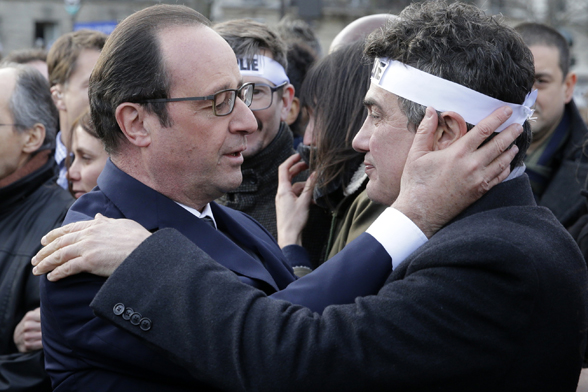
Twelve people were murdered in Paris last week for being associated with French satirical magazine Charlie Hebdo.
The murder set off shockwaves around the world and triggered an unprecedented show of support for free speech and the slain cartoonists.
Some 3.7 million people marched in Paris for a rally that saw 40 world leaders participating. Such was the response that the White House said subsequently that they should have sent someone with a higher profile to attend the march, according to this USA Today report.
But were the Paris shootings the definitive moment of crisis in free speech as we read in most of media? Or do we overlook many other instances only because they are not mainstreamed as such?
No and yes, says Teju Cole, Nigerian-American writer, photographer and author of Every Day Is For the Thief.
Cole argues in a recent New Yorker article titled "Unmournable Bodies" that free speech and other expressions of liberté are already in crisis in Western societies. “The crisis was not precipitated by three deranged gunmen. The U.S., for example, has consolidated its traditional monopoly on extreme violence and, in the era of big data, has also hoarded information about its deployment of that violence,” he writes.
He also posits that “the suggestion that violence by self-proclaimed Jihadists is the only threat to liberty in Western societies ignores other, often more immediate and intimate, dangers.”
Specifically, Cole points to the 'heresies’ against state power that are monitored and punished. “People have been arrested for making anti-military or anti-police comments on social media in the U.K. Mass surveillance has had a chilling effect on journalism and on the practice of the law in the U.S.”
The larger problem Cole feels is that radical Islamism is being singled out as the real, or the only, enemy. “This focus is part of the consensus about mournable bodies, and it often keeps us from paying proper attention to other, ongoing, instances of horrific carnage around the world: abductions and killings in Mexico, hundreds of children (and more than a dozen journalists) killed in Gaza by Israel last year, internecine massacres in the Central African Republic, and so on.”
He wishes some of the grief were also extended to the numerous Muslim victims of attacks, whether in Yemen or Nigeria—in both of which there were deadly massacres this week—or in Saudi Arabia, where, among many violations of human rights, the punishment for journalists who “insult Islam” is flogging.
And the larger point. While we may not be able to “attend to each outrage in every corner of the world” we should at least pause to consider how it is that mainstream opinion so quickly decides that certain violent deaths are more meaningful, and more worthy of commemoration, than others?